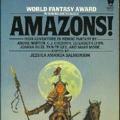Anthony a publié une critique de Babel 17 par Samuel R. Delany
Babel 17
2 étoiles
C'est le hasard qui m'amena à la lecture de Babel 17. Aussi, bien que le sujet du langage m'offrait mille possibles, je ne vous cacherai pas que je suis rapidement tombé dans la perplexité, puis la déception. Mon avis est simple, tranché, voici un mauvais livre. Les premières pages ont été comme une promesse. Ainsi, l'idée d'utiliser la linguistique comme porte d'entrée sur l'essence de la Pensée dans le domaine de la science-fiction m'a ouvert l'appétit. Faisant fi de la mauvaise écriture – peut-être pour partie liée à une vilaine traduction – j'ai peu à peu perdu tout intérêt pour un récit dont certains passages m'ont paru tout simplement affligeants. Sans divulgâcher, le dialogue entre l'héroïne et le Boucher qui, en quelques phrases, découvre la notion du "moi" par le truchement du "je" et du "tu" est vraiment tiré par les cheveux. De même pour le passage grossier de l'analyse …
C'est le hasard qui m'amena à la lecture de Babel 17. Aussi, bien que le sujet du langage m'offrait mille possibles, je ne vous cacherai pas que je suis rapidement tombé dans la perplexité, puis la déception. Mon avis est simple, tranché, voici un mauvais livre. Les premières pages ont été comme une promesse. Ainsi, l'idée d'utiliser la linguistique comme porte d'entrée sur l'essence de la Pensée dans le domaine de la science-fiction m'a ouvert l'appétit. Faisant fi de la mauvaise écriture – peut-être pour partie liée à une vilaine traduction – j'ai peu à peu perdu tout intérêt pour un récit dont certains passages m'ont paru tout simplement affligeants. Sans divulgâcher, le dialogue entre l'héroïne et le Boucher qui, en quelques phrases, découvre la notion du "moi" par le truchement du "je" et du "tu" est vraiment tiré par les cheveux. De même pour le passage grossier de l'analyse corporelle à la télépathie (jusqu'au contrôle mental). J'aurais pu refermer le livre à plusieurs reprises, mais je me fais un devoir d'aller au bout de mes lectures, par respect pour son auteur et pour donner au texte toute sa chance. Ici, chaque nouvelle page confirmait l'opinion qui poignit rapidement. J'apprends, parallèlement à cette petite note de lecture, que nous avons affaire ici à un livre de jeunesse. L'auteur, Samuel R. Delany, avait 24 ans à sa parution. Quoi qu'il en soit, cette fiction a reçu un prix et certains semblent aujourd'hui encore apprécier l'ouvrage. Pour ma part, vous l’aurez compris, cette lecture restera synonyme de profonde déception.





